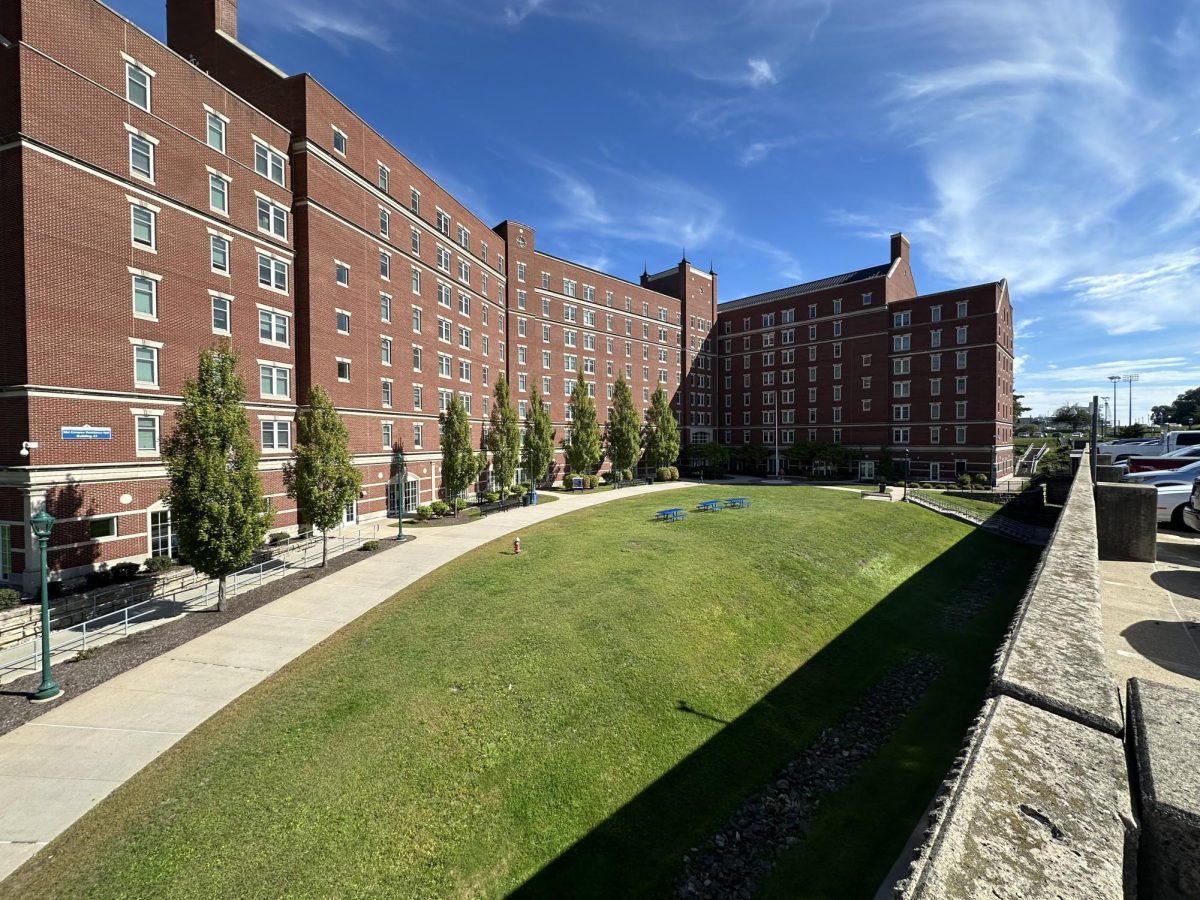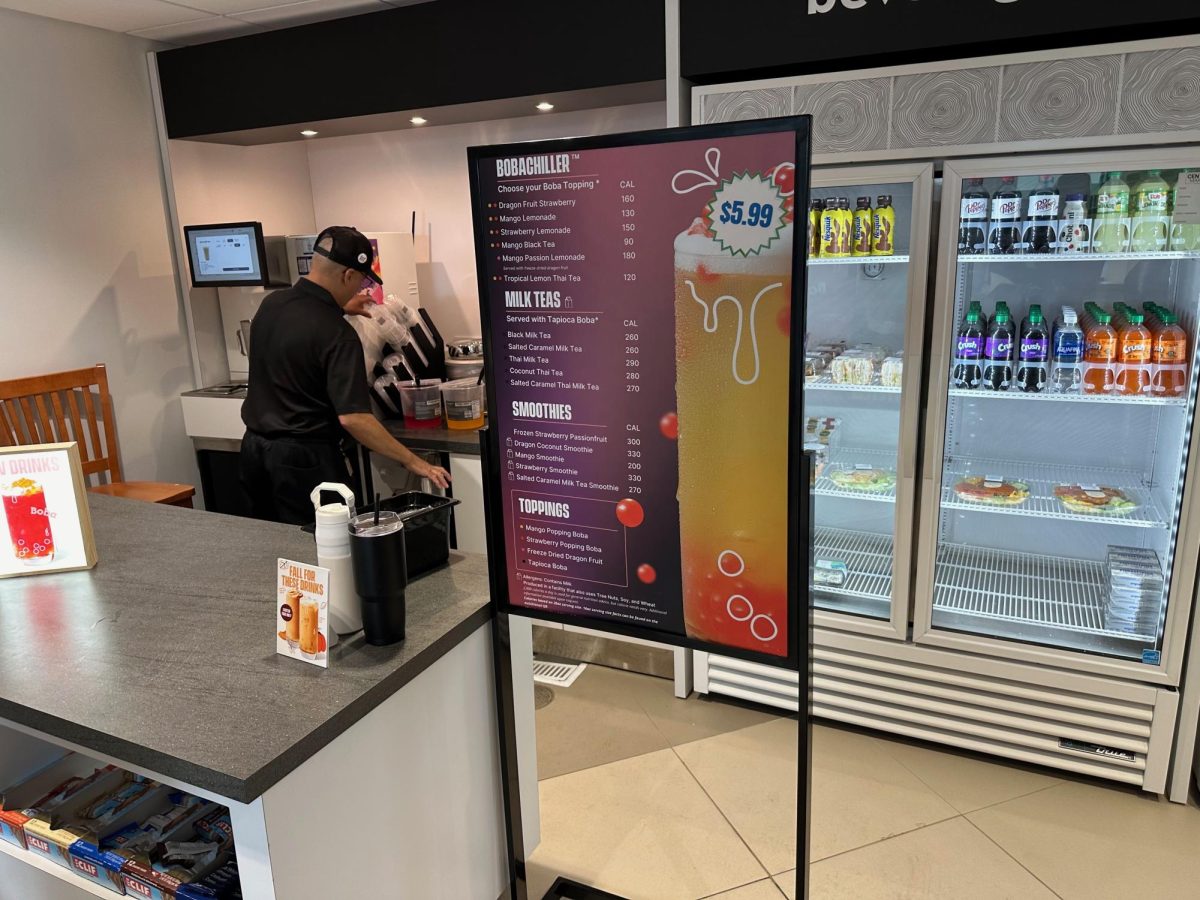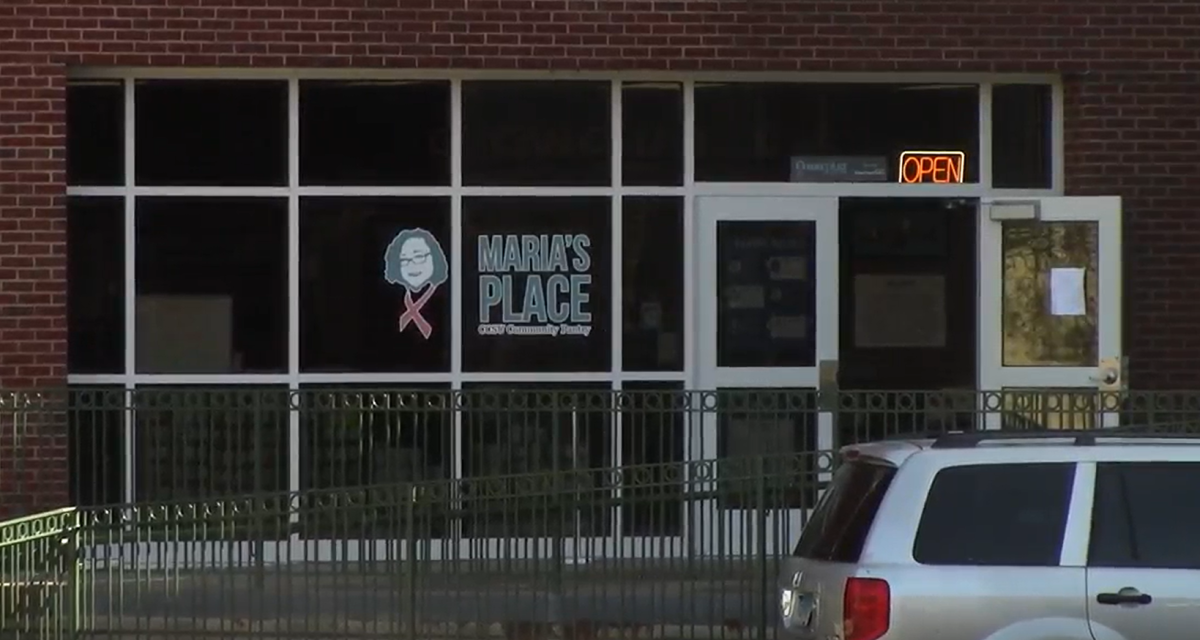Protests by food service workers at Central Connecticut State University have sparked campus-wide discussion about Sodexo. With common ground nowhere to be found, the renegotiation of their contract is at a standstill.
The contract governing wages, benefits, and workplace policies has expired since March, prompting an opportunity for conversation between Sodexo and the food service workers’ union, Local 217. Seeking higher pay, workers have been marching across campus, chanting slogans and wearing shirts reading, One Job Should Be Enough.
Kadeene Smith, a Starbucks barista on campus, said it is difficult to support her family with the current wages.
“We’re out here saying that one job should be enough. I’m a single mother and I work full-time at Central, but with inflation, our wages aren’t enough to cover daily expenses anymore,” she said. “It’s not about luxury or even living comfortably, I need a fair contract just so I can live and feed my kids. That’s why I’m serious about winning this contract, because it’s the contract we need.”
The First Cook at Memorial Hall, Nick Doty, is one of many food service workers on campus who have to go to extra lengths to meet basic needs.
“I typically work 60 hours a week and I drive for Uber on the weekends,” Doty said. “I want to be able to give my children a good life and be a good father to them. But at this rate, I have to choose between working enough hours to pay my bills and spending time with my family. No one should have to make this heartbreaking choice. I need a raise because I don’t want to miss out on my kids’ childhoods.”
Following the protests, President Zulma Toro provided a statement regarding the anticipation of the negotiation.
“The university respects the rights of workers and unions to demonstrate peacefully and encourages a civil and safe environment. Central remains committed to supporting students’ dining needs through this process,” she said. “We expect the Hospitality union and Sodexo, a private vendor, to come to a mutual agreement as soon as possible.”
In the exchange, Toro noted that Central has no say in the negotiation process.
The workers are looking to ensure that their voices and concerns are heard while continuing to fulfill their shifts, but they are running out of options.
“I want to just come to work, serve food to the students, and clock out. I don’t want to strike, but rent has gotten too expensive, as have grocery costs and other household needs, and our wages have not gone up nearly fast enough,” Smith said.
It’s not just Central’s food service workers that don’t have a contract at the moment, the same is true for Southern Connecticut State University and Western Connecticut State University, all of which are a part of Local 217.
With a strike vote at CCSU happening on Sept. 29, hopes are high that a resolution will come out of this lengthy process.



